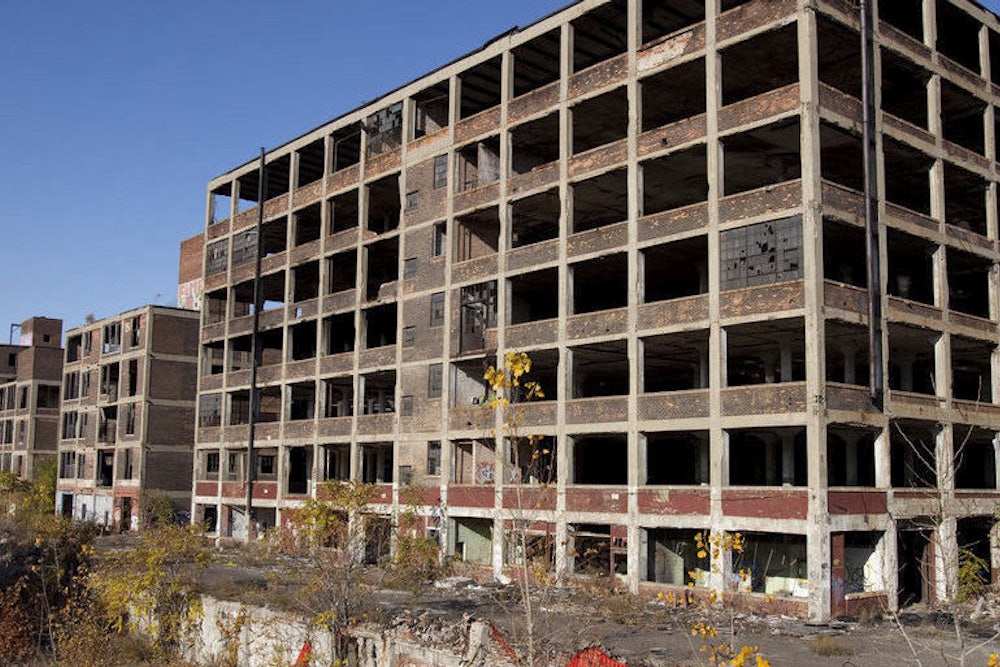On Tuesday, the New York Times came out with an exposé on the outlandish fees Detroit is paying lawyers and consultants to guide it through the biggest municipal bankruptcy in United States history. According to the Times, the city has already shelled out more than $19 million for these firms’ advice, and contract amounts could cost as much as $60.6 million. (A Detroit Free Press article put the price closer to $62 million.)
These numbers sound big. But how big are they really? Detroit has a billion-dollar budget and it’s $18 billion in debt—in that light, $60 million sounds rather paltry.
So how does the consulting price tag stack up to the rest of the city’s spending on regular municipal activities? It’s not an easy question to answer. Since state-appointed Emergency Manager Kevyn Orr took control of the city's finances, its operating budget has been supremely difficult to pin down. “Formally, there is no budget,” one high-level city official who did not want to be named told me. Robin Boyle, chair of Urban Studies & Planning at Detroit’s Wayne State University, elaborated on this common frustration. “It’s very difficult to tell exactly what Mr. Orr and his staff are actually implementing,” he said. “I and many other commentators are picking up crumbs at best.” My calls to the Interim Budget Director, members of City Council, the City Council’s Fiscal Office Director, and other officials went unreturned. Mailboxes were often full. The main number for the City of Detroit Budget Department has been disconnected.
Three different plans offer clues to Detroit's theoretical budget. There's an outdated Mayoral budget. There's a list of reductions to that budget made by City Council and approved by Emergency Manager Orr, unavailable online but obtained by The New Republic. And there's a set of further cuts made by Orr in accordance with Ten-Year Projections for the city, that, though they’ve been approved, have yet to be added to the budget.
Effectively, for now, Detroit is using the original Mayor’s budget with City Council’s reductions tacked on, though that will change if and when Orr’s amendments go through. No word as of yet on what those will be, though they've been mandated by an Emergency Manager's Order.
I used the mayor’s document and the City Council file to calculate how the money Detroit has set aside for bankruptcy contracts stacks up against other city expenditures, to give a sense of how much the money means to the city. Though $60 million appears a drop in Detroit's budget, it could still go a long way towards buttressing the city's anemic social programs and crime prevention measures. "Yes, you could have done something better with the $19 million [that Detroit has already spent], the high-level city official said. "You could have cleaned the streets or fixed the lights that are all broken. But if it works, it’s worth it."
Detroit's potential $60 million in bankruptcy contracts is 16 percent of its police department appropriations.
It's 34 percent of its fire department budget.
It's 93 percent of its budget for the Criminal Investigation Bureau.
It’s the entire city public lighting budget, with change to spare.
It’s three-and-a-half times the city’s budget for its own stable of lawyers.
It’s more than four times the city public health budget—including the $11.6 million in health grants the city receives.
It’s seven times the city budget for the Department of Elections.
It’s 45 times the operating appropriations for the Coleman A. Young airport.
It’s 139 times the budget for the Employment Services Agency, which, among other things, administers unemployment pay.
It's 164 times the budget for prisoner care.
And it’s 171 times the budget for the city’s Rape Counseling Unit.
Mimi Dwyer is a reporter-researcher at The New Republic.
